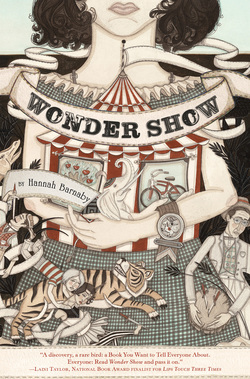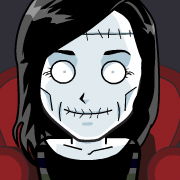
Portia was too young when her mother left. From her, Portia has no memories. When Portia's father leaves to follow the circus, however, Portia is very aware of the pain of her loss. Left to be raised by her Aunt Sophia, a practical woman with no imagination, Portia holds on to the hope that her father will be back for her. When Aunt Sophia, tired of her niece's willful and stubborn ways, dumps the girl at the McGreavy Home of Wayward Girls, it is Portia's hope to her father will find her that keeps her going. The Home is run by a cold, calculating man known simply as "Mister," and his charges are subjected to hard labor and awful living conditions. Portia would have waited for her father's return were it not for a horrible incident that leaves her with the terrible burden of guilt. To escape an unbearable situation, she runs away to join Mosco's Traveling Wonder Show, a sideshow for circuses where "human oddities" are the main attraction. Even though she is a "normal," her storytelling skills guarantee her a job with the show introducing the talent. As the circus moves from to town to town, Portia must find her father before Mister finds her.
Wonder Show plays on the old idea of running away with the circus to tell a fresh and engaging story. Portia is a modern heroine, a young woman who takes charge of her destiny and makes use of her talent as a storyteller to survive instead of waiting for someone to rescue her. One interesting aspect of Wonder Show is that even though the book is written in third person, the author allows her characters to speak in first-person chapters that shows us exactly what each of the "oddities" is thinking. Like the oddities in the sideshow, this book is weird, eerie, warm, and delightfully human.
Wonder Show plays on the old idea of running away with the circus to tell a fresh and engaging story. Portia is a modern heroine, a young woman who takes charge of her destiny and makes use of her talent as a storyteller to survive instead of waiting for someone to rescue her. One interesting aspect of Wonder Show is that even though the book is written in third person, the author allows her characters to speak in first-person chapters that shows us exactly what each of the "oddities" is thinking. Like the oddities in the sideshow, this book is weird, eerie, warm, and delightfully human.





















 RSS Feed
RSS Feed